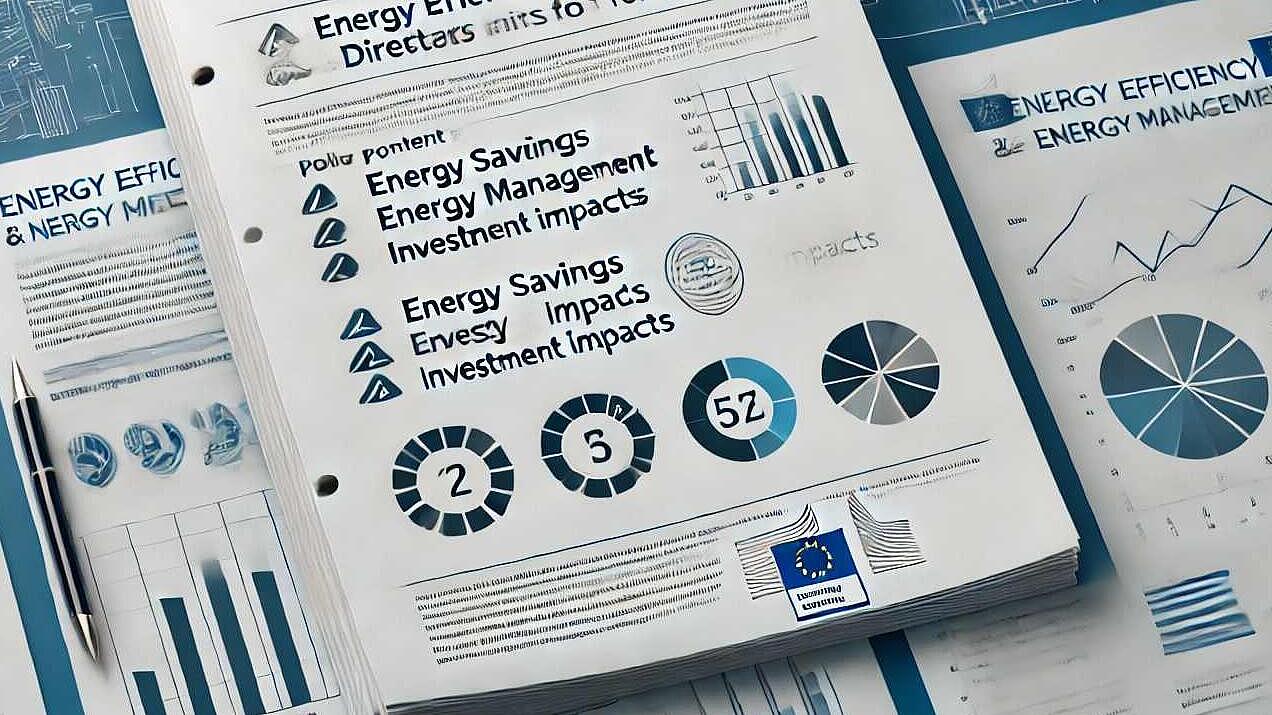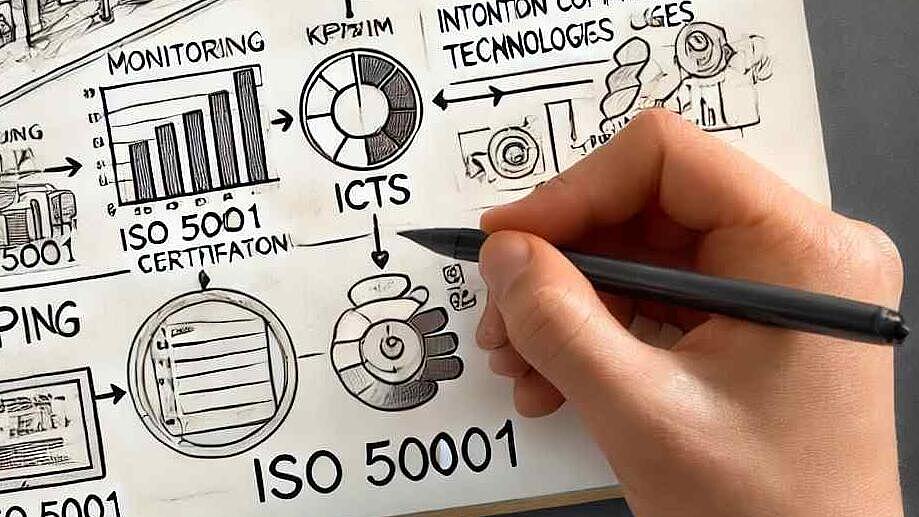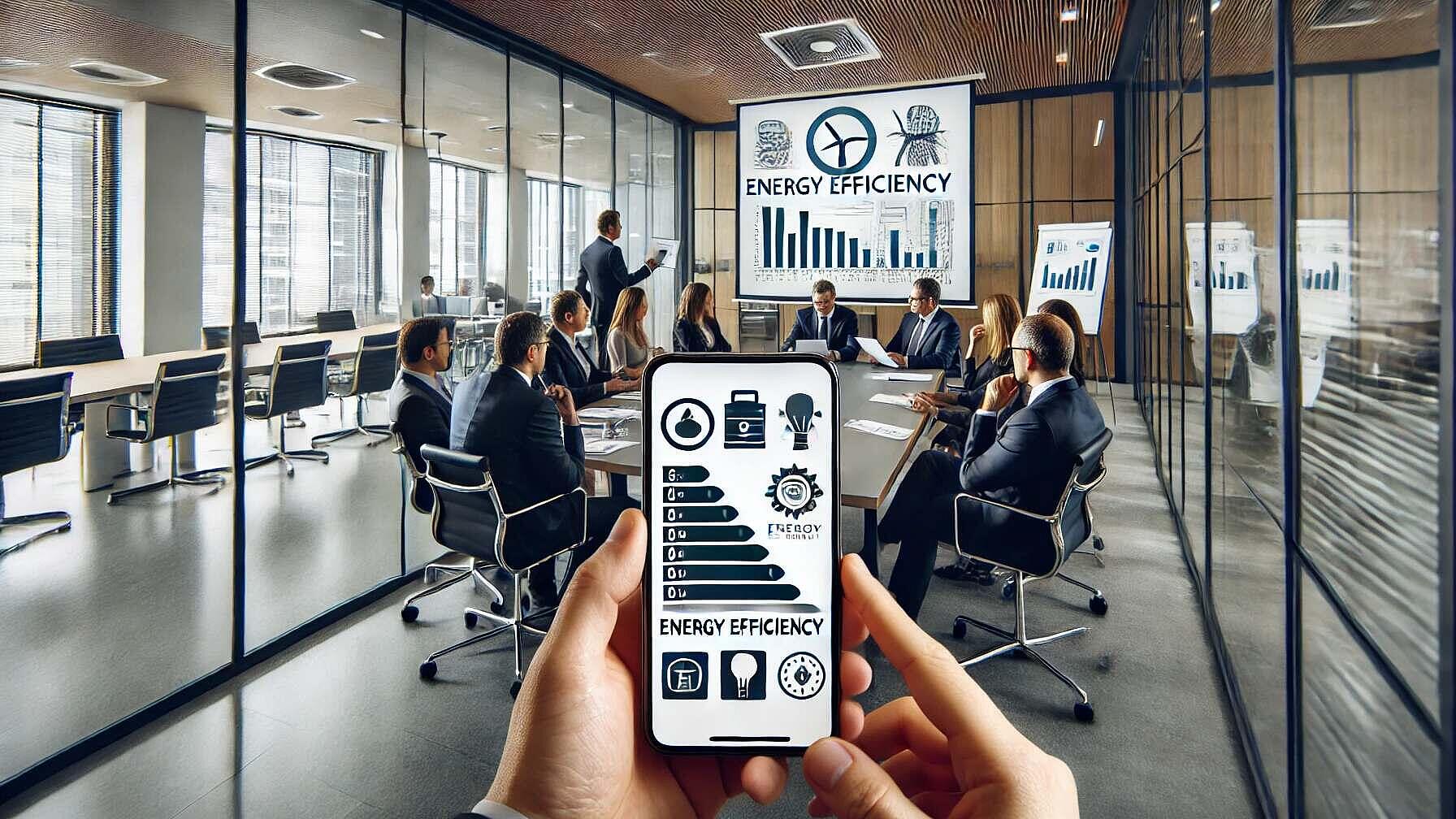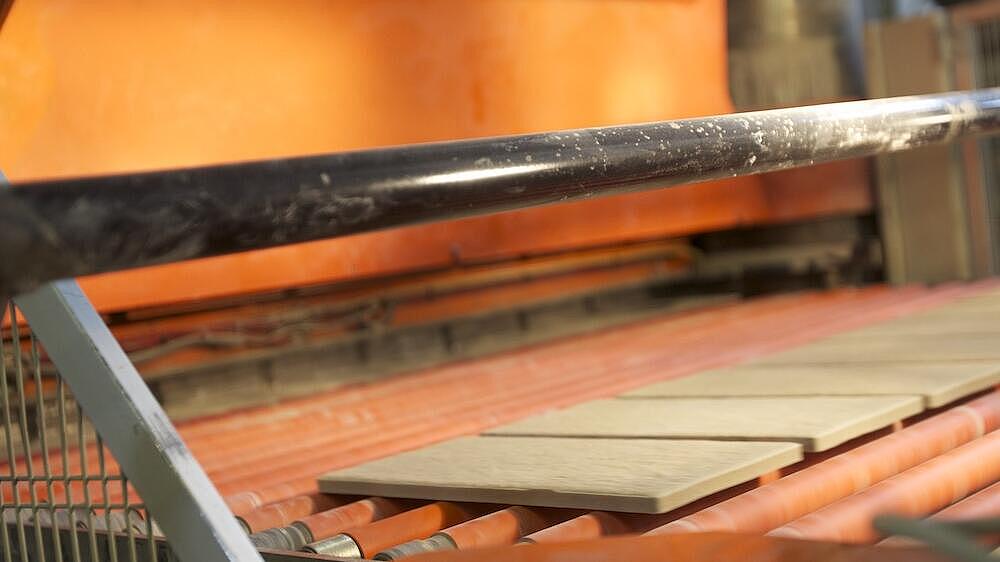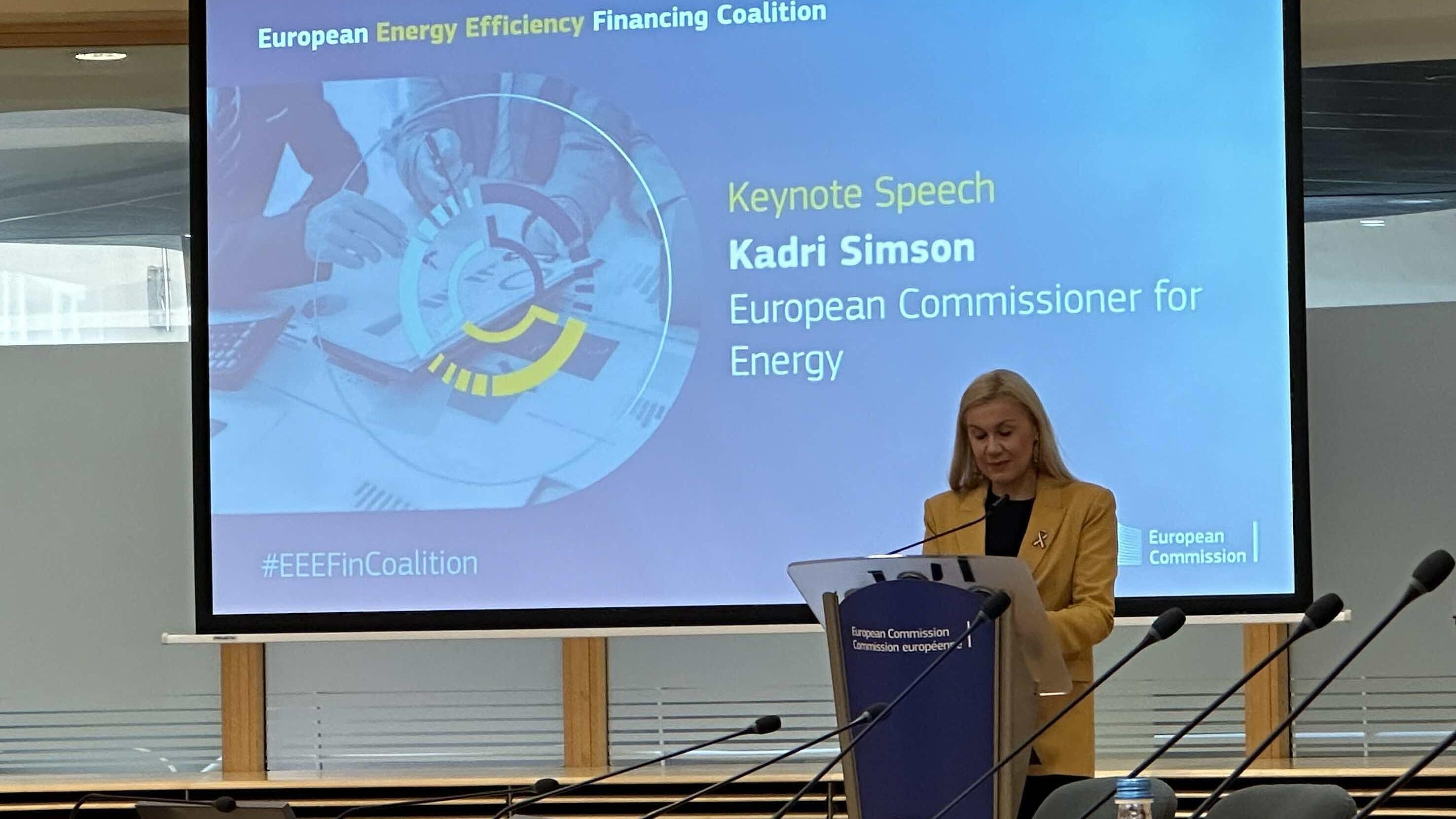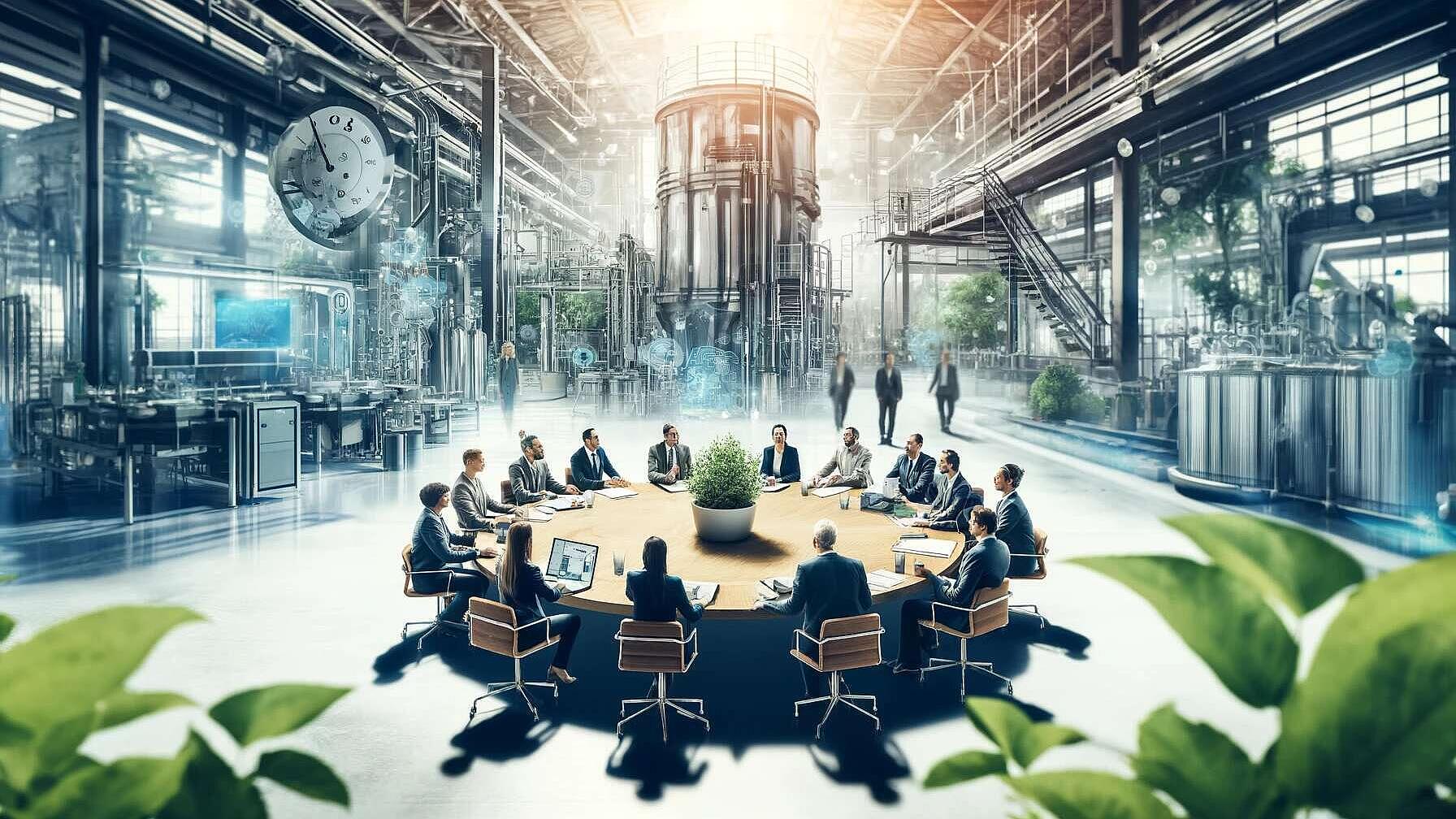 Energy Efficiency
Energy EfficiencyEnergy Efficiency
The EU's Directive (EU) 2023/1791 is a critical step in addressing climate change through enhanced energy efficiency. It sets a binding target to reduce energy consumption by at least 11.7% by 2030, with specific goals for both final (763 Mtoe) and primary energy consumption (992.5 Mtoe). Member States are tasked with developing national indicators contributing to these targets, employing a standardized methodology that considers several factors. To ensure collective efforts meet EU-wide objectives, the Directive allows the Commission to revise national contributions if necessary. The public sector is pivotal in this initiative, mandated to reduce energy consumption by 1.9% annually. Moreover, 3% of public bodies' building floor areas must be renovated yearly to meet energy efficiency standards. Public procurement policies are now required to prioritize energy-efficient options. Within the building sector, responsible for 40% of EU's energy consumption, the Directive mandates more stringent renovation standards and measures to alleviate energy poverty. The industry sector must also conduct energy audits and establish energy management systems, particularly for large enterprises, to identify energy-saving opportunities. The Directive focuses on optimizing heating and cooling systems, including comprehensive assessments and the adoption of efficient district systems that must use renewable energy or waste heat by 2050. New regulations are introduced for industrial and commercial waste heat utilization. Consumer empowerment and protection against energy poverty are addressed through improved energy billing transparency and the establishment of consumer rights regarding energy services. Member States must ensure energy efficiency measures do not negatively impact vulnerable populations. For effective implementation, the Directive demands detailed national energy action plans, progress reporting, and compliance monitoring. The European Commission holds enforcement capabilities, including recommendations and infringement proceedings if Member States do not fulfill obligations. In conclusion, the Directive aims to bring about significant advances in energy efficiency across the EU, ensuring consumer empowerment, social equity, and adherence to climate goals. Its implementation is expected to stimulate innovation, business opportunities, and establish the EU as a leader in sustainable energy use.
Read Full articleEnergy Efficiency in Food Manufacturing: Sustainable Growth Through Smart Technologies
The paper discusses the critical role of energy efficiency in food production, emphasizing the need for food manufacturers to adopt energy management practices to remain competitive and sustainable. It outlines the benefits of benchmarking and KPIs, the adoption of frameworks like ISO 50001, and the utilization of advanced monitoring, control systems, and ICT for improved energy performance. It also addresses barriers to implementation and strategies for overcoming these challenges.
Read Full articleEnergy Efficiency Reloaded: How European SMEs Are Driving Sustainability and Savings
SMEs, at 98.9% of European businesses, collectively account for 13% of energy demand, presenting significant energy efficiency potential. Barriers include financial constraints and lack of energy management. Supportive policies and tailored programs can incentivize efficiency improvements, leveraging SMEs' key role in reaching the EU's energy goals.
Read Full articleUnlocking Energy Efficiency: How Top Management Decisions Shape Industrial Sustainability
The survey of European industries on energy efficiency reveals high concerns for energy costs, positive attitudes towards exceeding environmental standards, yet a notable gap in adopting recommended energy-saving measures due to factors like cost, complexity, and management decision-making.
Read Full articleJuly Quiz OPEN - EnerWhizz: The Electrifying New Mobile Quiz from EEIP
EnerWhizz, launched by EEIP, is a mobile quiz game promoting energy innovation knowledge through fast-paced yes-or-no questions. Top scorers win monthly prizes. The game, based on the EU-funded EENOVA project, aims to educate on energy transition technologies, policies, and best practices.
Read Full articleThe Great EENOVA Adventure: Benny the Baker's Wacky Quest for Energy-Smart Snacks!
FUN STORY: The EENOVA project enhanced energy efficiency in Foodville's food processing industry through whimsical roundtables, innovative audits, practical solutions, policy recommendations, celebratory events, skill training, and humorous communication strategies, leaving a sustainable and competitive legacy.
Read Full articleThe Mechanics of Ceramics: How the Industry Can Decarbonize
The ceramics industry in Europe has made significant progress in energy optimization, cutting consumption by half in 25 years. Challenges persist, including reliance on carbon-emitting methane burners and raw material imports. Innovations and regulatory measures aim to decrease emissions and resource waste, promoting sustainable manufacturing across the sector's 338,000 jobs and €27.8 billion contribution to the EU economy.
Read Full articleCompetitiveness of the European Energy-Intensive Industries
The European Round Table for Industry reports, authored by the Boston Consulting Group, highlight challenges in Europe's energy transition, advocating for regulatory changes to foster competitiveness amid higher energy costs, risk of deindustrialization, and the need for large-scale investment in energy infrastructure to meet Green Deal goals.
Read Full articleFinancing energy efficiency work continues: from EEFIG to EEEFinCoalition
The EEEFinCoalition launch aims to foster dialogue and improve the energy efficiency investment climate. It builds on EEFIG's work which enhanced commercial investment in energy-efficient technologies. EEFIG's final reports serve as key references for financing energy efficiency in buildings and industry, with a focus on consumer demand and regulatory frameworks. The EEIP extends EEFIG's efforts, particularly for SMEs, through projects like DEESME 2050.
Read Full articleInnovative Energy Efficiency in the European Food and Beverage Industry: A Holistic Human-Centered Approach
The INDUCE project under Horizon 2020 promotes energy efficiency in the European food and beverage sector with a human-centered design approach. Its methodology, validated by pilot programs, combines technical, behavioral, and cultural changes for sustainable energy practices, targeting broad industry application and energy savings.
Read Full article